Salted Butter vs Unsalted Butter (Best butter for baking cakes) I

Should You Bake With Unsalted Or Salted Butter? Kitchen Seer
A lot of bakers use unsalted butter so they can have more control over the total amount of salt used in a recipe. I, however, have always used salted butter in my baking while still adding whatever amount of salt is called for in a recipe. Unless your recipe calls for a great deal of butter, salted or unsalted won't make or break the recipe.
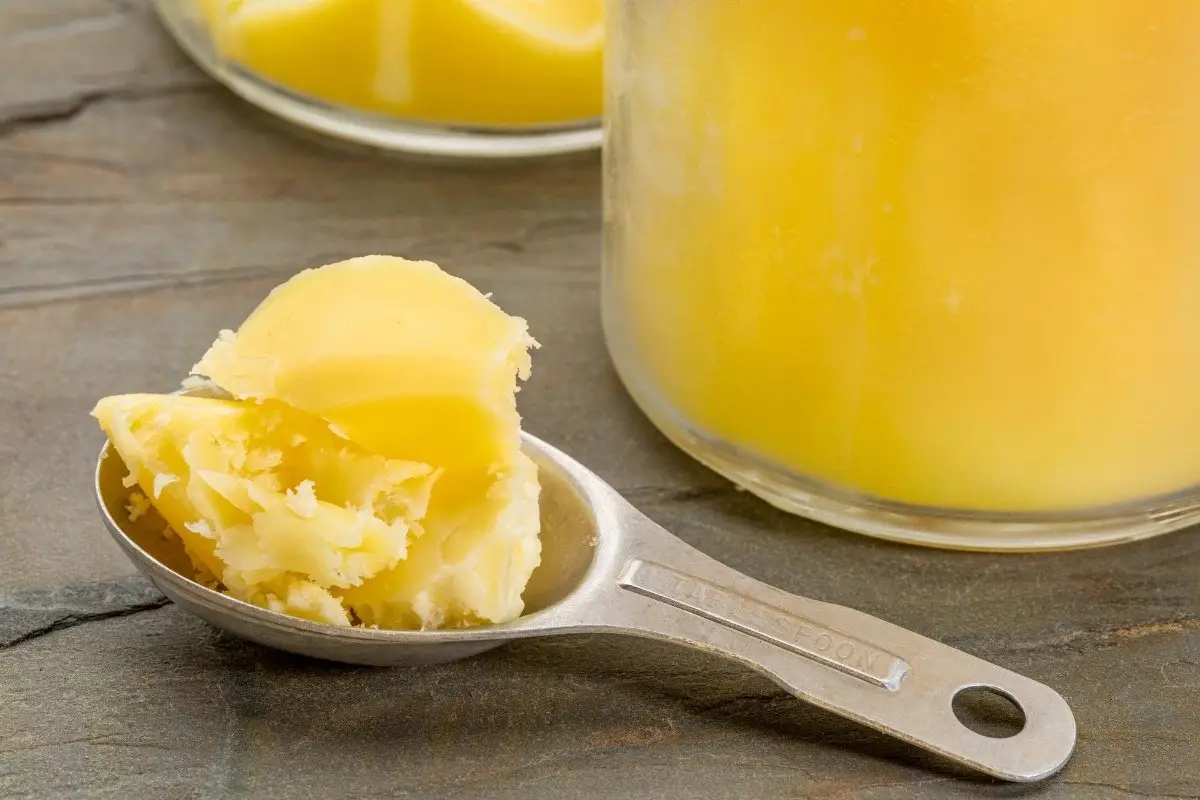
Do I Use Salted Or Unsalted Butter For Cookies? Help! Cake Decorist
Step 2: Cream the butter and sugar until it is completely mixed (3 minutes on medium-high should do the trick.) Step 3: Add 2 tablespoons of vanilla and 2 eggs. I know that sounds like a lot of vanilla but this recipe needs a little extra moisture and the cookies will taste great.

Substituting Unsalted Butter For Salted How To Swap Them In Recipes
Preheat your oven to 350 degrees F and line a baking sheet with parchment paper or spray with nonstick cooking spray. Set aside. Combine flour, baking powder, and salt in a small mixing bowl. In another bowl, use an electric mixer to cream the butter. Add in the sugar and beat until light and fluffy.
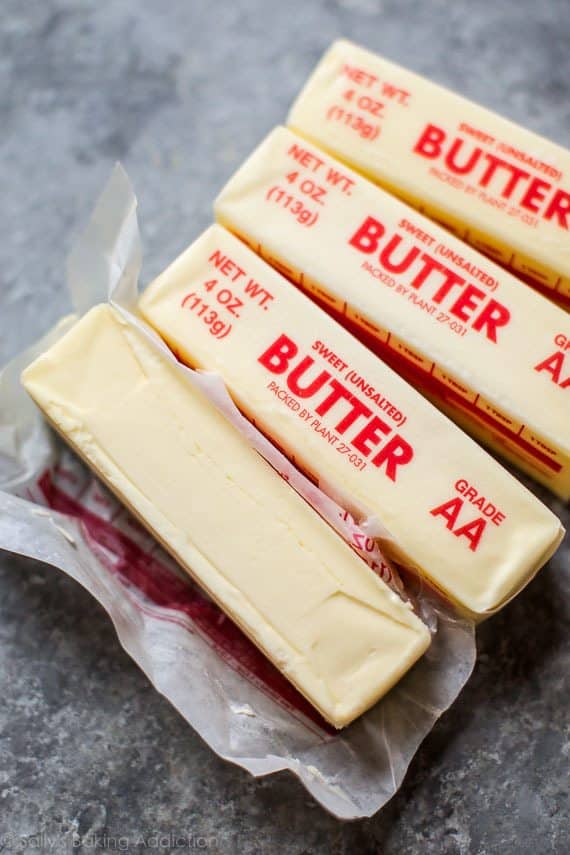
Salted Butter vs Unsalted Butter in Baking Sallys Baking Addiction
Add the sugar and mix until combined. Add eggs one at a time mixing well in between each addition. Add the vanilla, salt, baking powder, and mix. Mix in the flour one cup at a time and mix just until the ingredients are combined. Divide the dough into 3 discs and roll each one out on a mat.

Pin on DIY & Crafts & Home Decor & Design
The sugar should be ready to use after 2 minutes of beating. For each cup of beaten egg, add vanilla extract and a flour mixture. Preheat the oven to 350 degrees Fahrenheit and allow dough to be dropped by rounding tablespoons onto the baking sheet. Place cookies on a baking sheet for 12 minutes, or until golden brown.

Pin on Etsy for Sale Group Board
Chilling the dough before baking and using a higher ratio of flour to butter can help prevent sugar cookies from spreading too much in the oven. 5. Should I use salted or unsalted butter for sugar cookie frosting? For sugar cookie frosting, it's best to use unsalted butter to have more control over the sweetness and saltiness of the frosting.
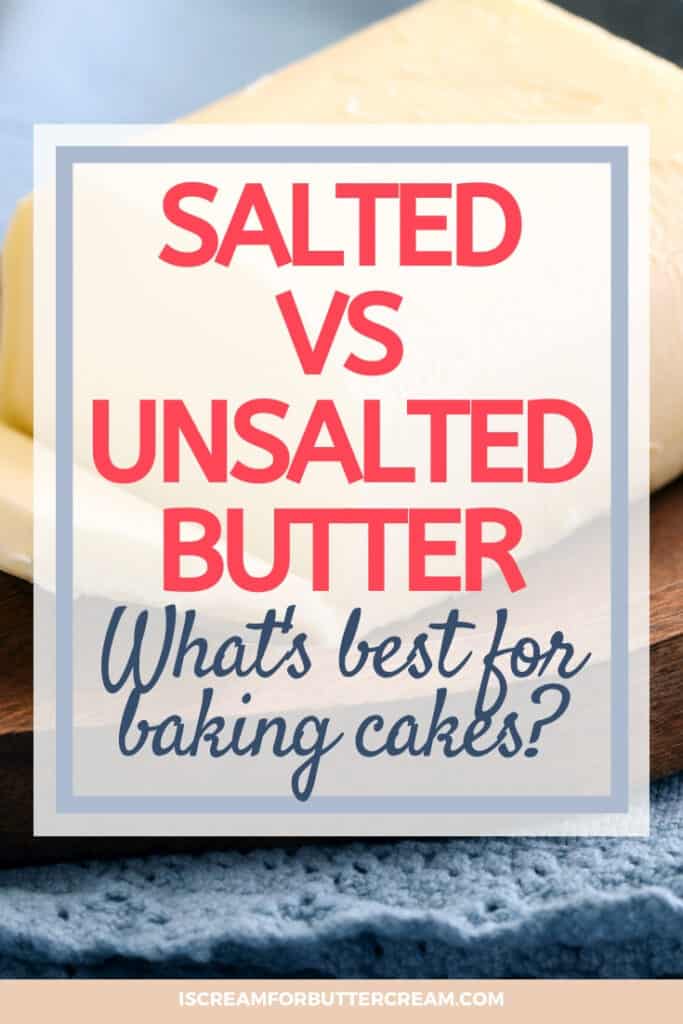
Salted Butter vs Unsalted Butter (Best butter for baking cakes) I
The same holds true if substituting unsalted butter for salted: for every 1/2 cup of salted butter, you can substitute 1/2 cup of unsalted and add an additional 1/4 teaspoon to the amount of salt.
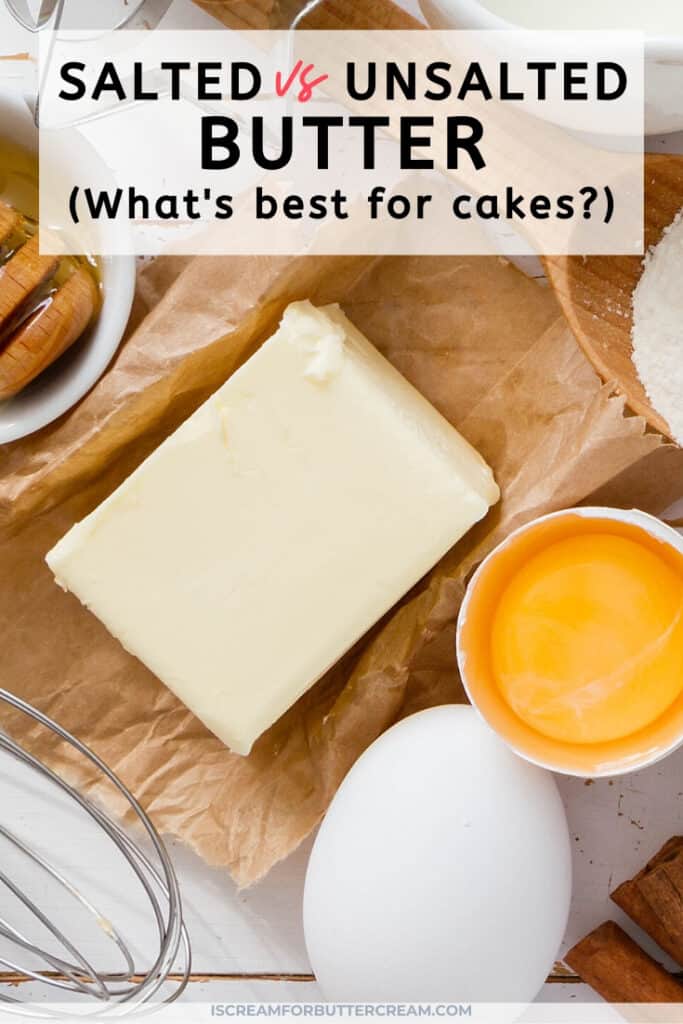
Salted Butter vs Unsalted Butter (Best butter for baking cakes) I
Add the eggs and vanilla, then mix until combined. Add the dry ingredients (flour and baking powder), and mix until combined. Roll the dough out on a well floured surface. Cut into your desired shapes. Place the cut out cookies on a parchment lined baking sheet and freeze for 10 minutes prior to baking.
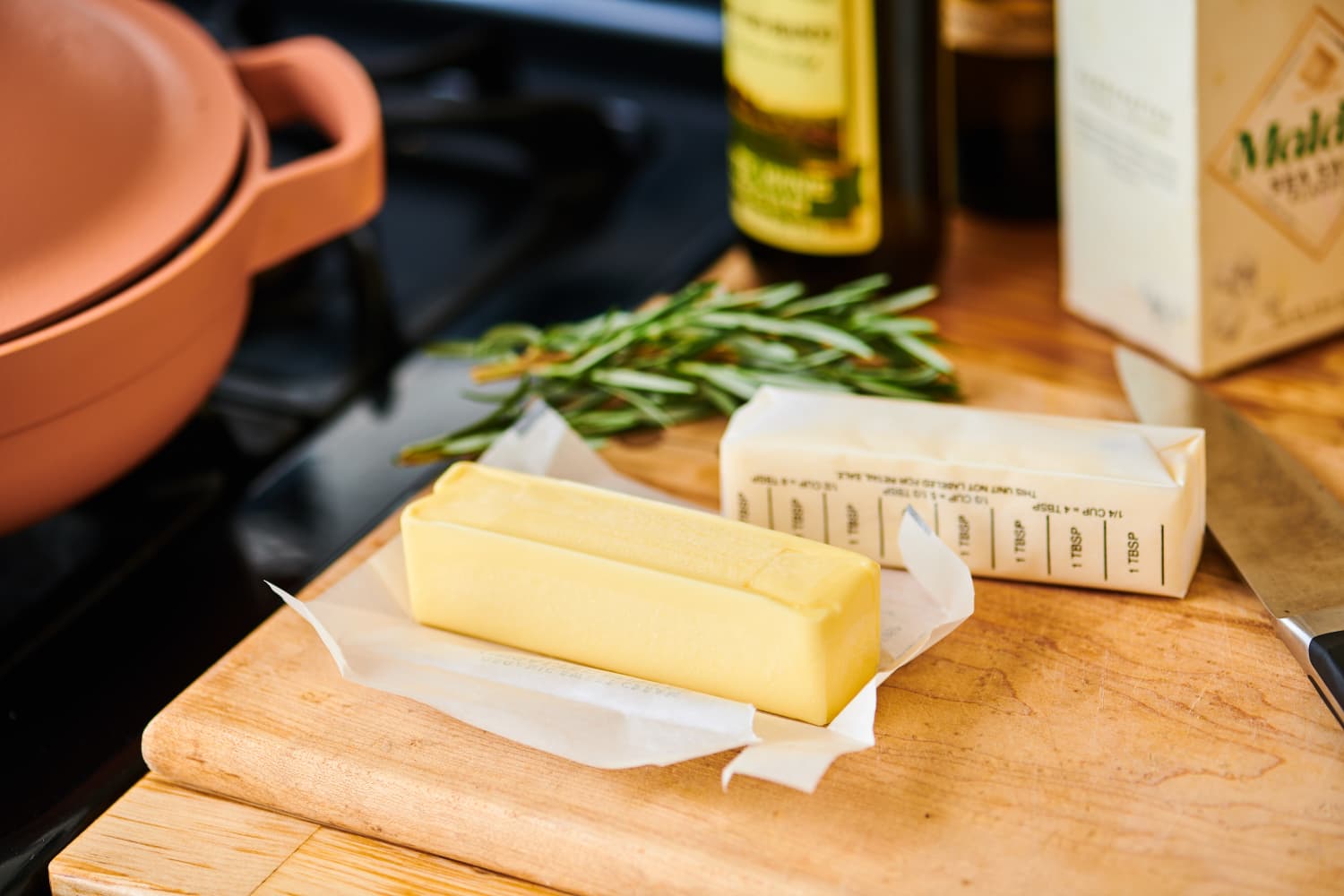
Salted vs. Unsalted Butter Which One Should I Use? The Kitchn
Salt can comprise anywhere from 1.25 to 1.75% of the total weight of your butter or, nearly 92 milligrams of salt per tablespoon. Because the amount of salt in salted butter varies, it's better to use it as a spread than in baked goods. If you're cooking something savory and using salted butter, taste as you go to avoid over-salting your dish.
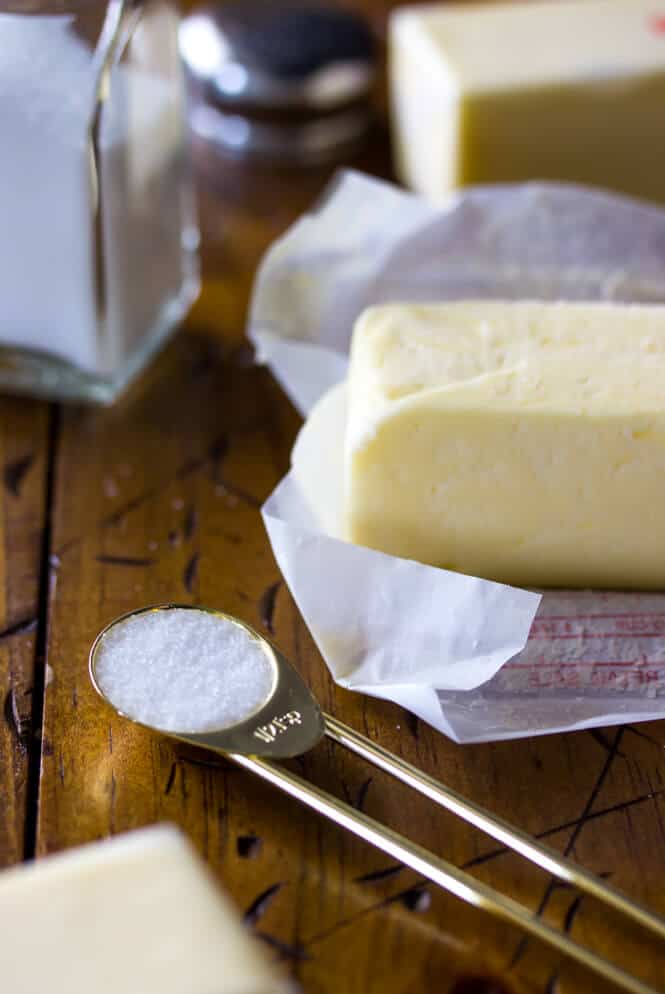
Kitchen Tips Salted or Unsalted Butter? Sugar Spun Run
When to Use Unsalted Butter. Unsalted butter gives you complete control of the overall flavor of your recipe. This is especially important in certain baked goods where the pure, sweet cream flavor of butter is key (butter cookies or pound cakes). As it pertains to cooking, unsalted butter lets the real, natural flavor of your foods come through.

Unsalted Butter vs. Salted Butter Which Is Better? MyRecipes
According to Organic Valley, most salted butter has about 1/4 to 1/2 teaspoon salt per stick, but the amount of salt can vary by brand. This is the reason why many recipes call for unsalted butter. You can then control for the amount of salt you add to your recipe. Salted butter also tends to have a longer shelf life compared unsalted butter.
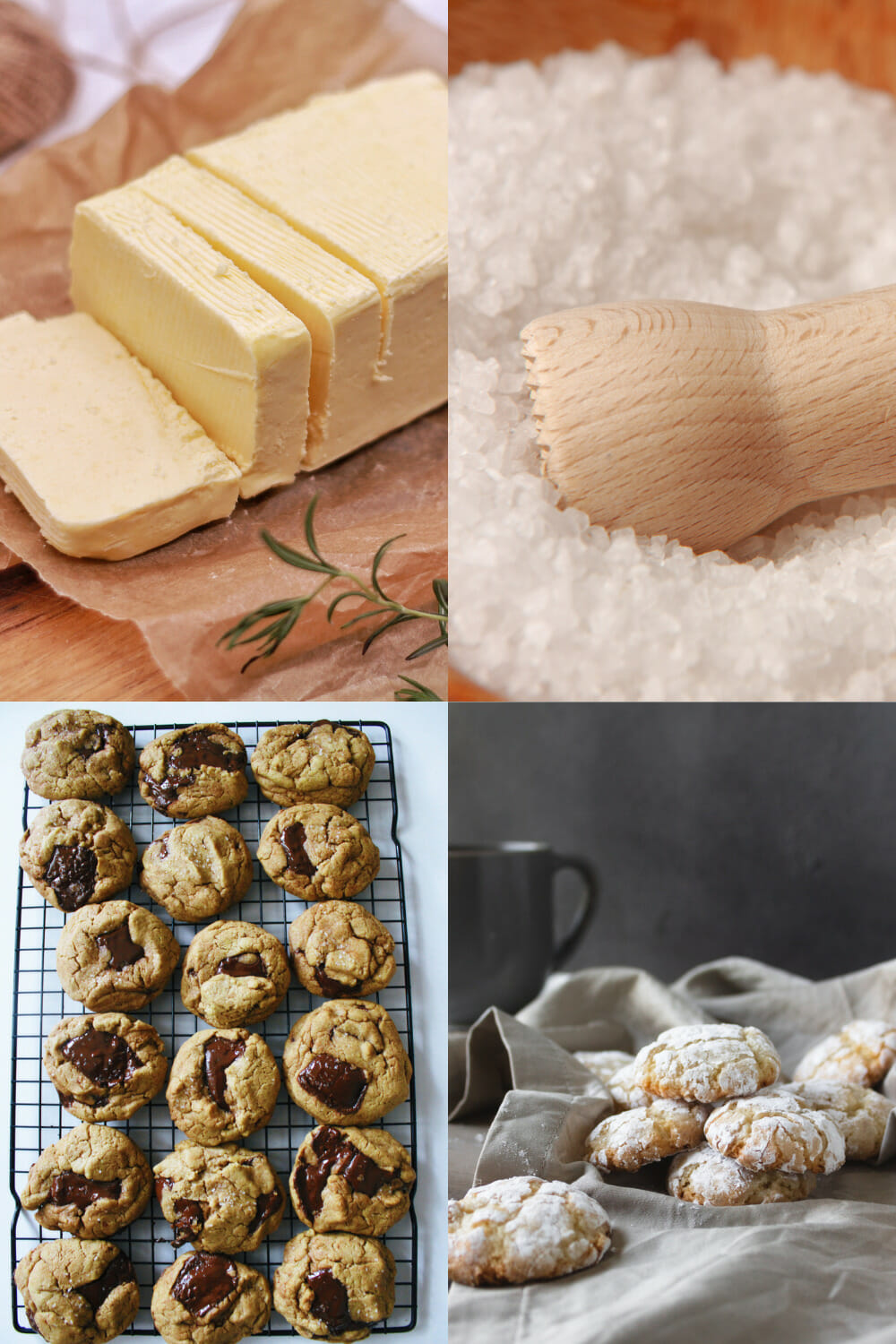
Should you use salted or unsalted butter in cookies? No Fuss Kitchen
While unsalted butter is always preferred when called for, there is a substitution: my general rule of thumb is to decrease the amount of salt that the recipe calls for by ½ teaspoon per cup of butter. For example, if a recipe calls for 1 cup (or two sticks, or 227g for you metric users) of unsalted butter and 1 teaspoon salt, I would use 1.

Salted Butter vs Unsalted Butter (Best butter for baking cakes
Texture. Another way salted and unsalted butter differ is in their texture, which can also affect how your cookies turn out. Compared to the unsalted kind, salted butter has a much higher water content, which is bad for baking. Water in butter can range anywhere from 10-18% and salted butter tends to be on the higher side of this scale.

Should You Be Using Salted or Unsalted Butter for Baking? Salted or
Preheat oven to 350°F (177°C). Line large baking sheets with parchment paper or silicone baking mats and set aside. In the bowl of a stand mixer fitted with the paddle attachment, or in a large mixing bowl using a handheld mixer, beat the butter and granulated sugar together for 1-2 minutes or until well combined.
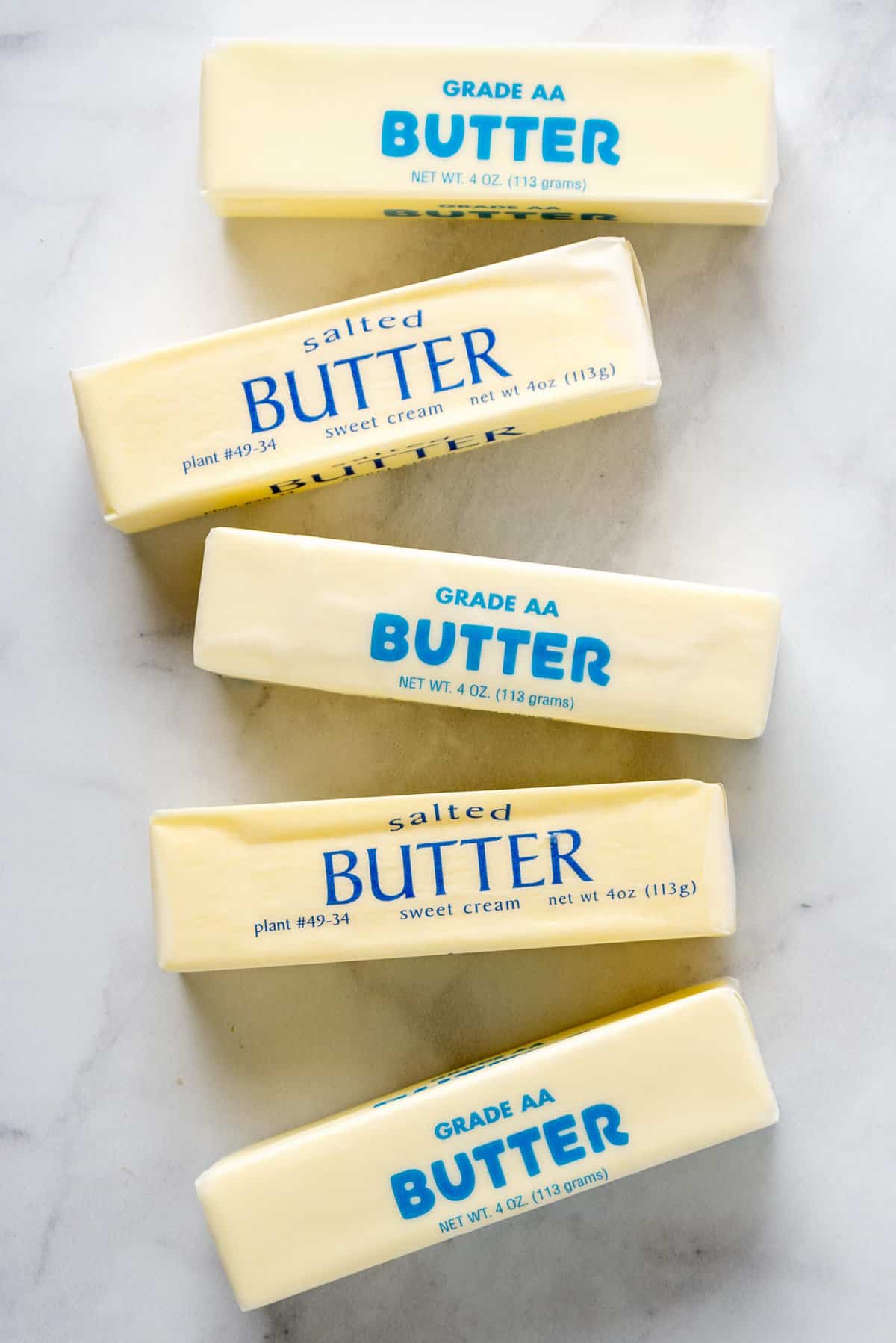
When to Use Salted vs. Unsalted Butter All Things Mamma
2. Unsalted butter is fresher. Salt is a preservative and therefore, salted butter has a longer shelf life than unsalted butter. We're talking 3-4 months of shelf time. This doesn't necessarily mean that salted butter has been on the shelf longer; it simply has a longer shelf life. For the freshest butter, reach for the unsalted variety.
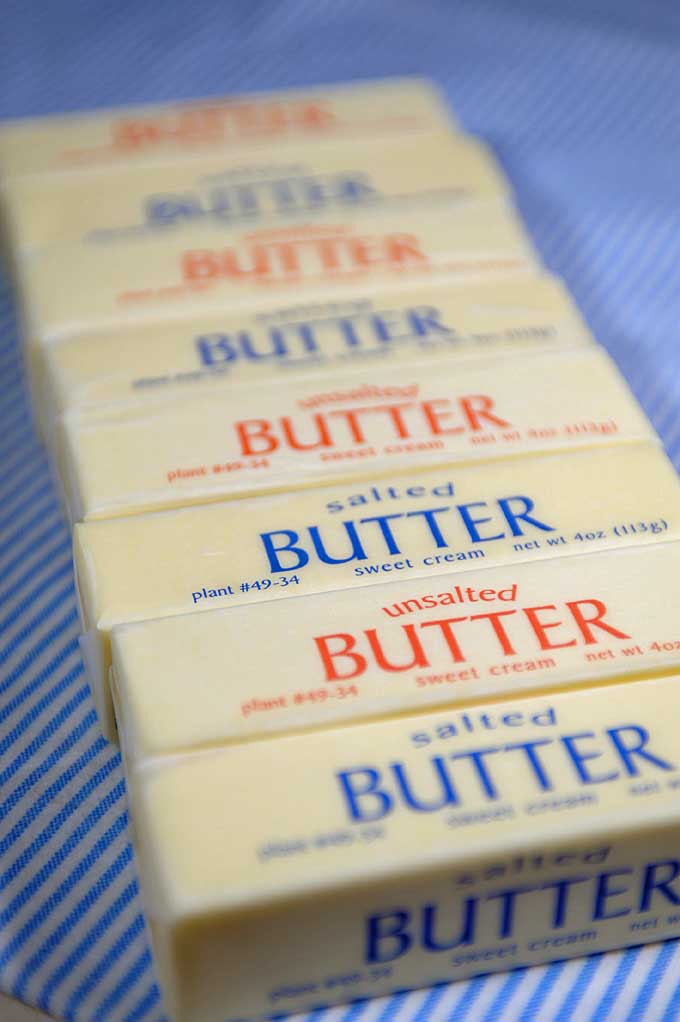
Unsalted vs. Salted Butter Which is Best for Baking? Foodal
Yes, you can substitute salted butter for unsalted butter in a cookie recipe, but you may need to adjust the amount of salt in the recipe to compensate for the salt in the butter. 2. How does using salted butter affect the flavor of cookies? Using salted butter can add a subtle savory flavor to the cookies, which some people may prefer.